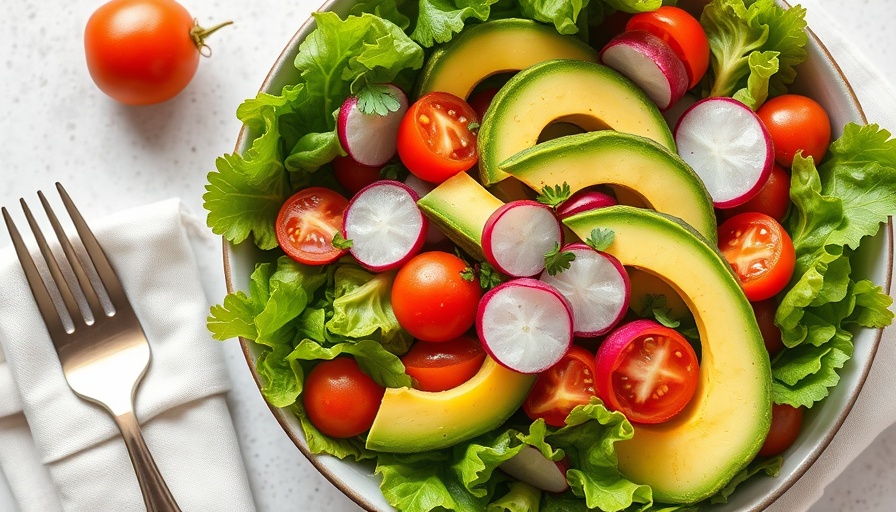
A Nutritional Breakthrough: The Role of Diet in Cancer Management
Breast cancer diagnosis can be a daunting challenge, but emerging research suggests that dietary changes may play a critical role in improving survival outcomes. A pivotal study has shown that women with breast cancer who integrate a variety of cruciferous vegetables into their diets can leverage the anti-cancer properties of these food items to potentially impact survival rates positively.
Understanding the Science: Metastatic Cancer and Diet Connection
At the heart of this promising research is a particular receptor known as CD36, implicated in the spread of cancer cells. While saturated fats found in various meats can upregulate this receptor, leading to accelerated tumor growth and spread, cruciferous vegetables like broccoli have been shown to downregulate CD36 expression, reducing the risk of metastasis in experimental settings. Reports indicate that broccoli can decrease CD36 expression by as much as 35%. This mechanism presents a clear differentiator between the benefits of a plant-based diet rich in fruits and vegetables and the negative impacts of high-fat meat and dairy consumption.
Real-World Implications: Eating Habits That Matter
In practical terms, the Women’s Healthy Eating and Living Study has provided critical insights into dietary interventions after a breast cancer diagnosis. While some groups aimed to reduce fat intake substantially, results indicated minimal adherence to these guidelines, leading to inconclusive findings. For women truly committed to dietary change, the evidence suggests that adopting a lower-fat, plant-rich diet can lead to improved outcomes. Such dietary choices make a compelling case for the liberal culinary use of cruciferous vegetables, combining them frequently into meals.
Statistics Speak Volumes: Cancer Survivorship and Diet
Survival statistics reinforce these dietary recommendations. In several cancer types—including ovarian and lung cancers—patients who frequently incorporate cruciferous vegetables have exhibited significantly better survival rates compared to those who consume little or none at all. For instance, one study found that approximately 75% of lung cancer patients eating more than one serving of cruciferous veggies daily were still alive a year post-diagnosis, showcasing the stark contrast in outcomes based on dietary choices.
Eating for Recovery: A Holistic Health Perspective
Integrative health practices emphasize the importance of diet not just for nutritional value but as a core pillar of holistic wellness. The emotional well-being of cancer patients can also be positively influenced by engaging in a healthy lifestyle that prioritizes plant-based foods. Choosing foods that align with one’s health goals fosters a sense of control during an otherwise tumultuous time, contributing not only to physical improvement but also emotional comfort.
Beyond Vegetables: The Hidden Dangers of Certain Foods
It’s not just about what patients should eat; the diet also emphasizes avoiding specific items that might increase risk factors. For example, high consumption of meats and dairy has been linked to poorer survival outcomes in various studies. These food items may contribute to elevated estrogen levels and increased cancer cell proliferation. Thus, a diet high in plant-based nutrition could offer a diverse range of benefits, not just in terms of calorie consumption but also cancer prevention.
Practical Tips to Begin a Healthier Diet
For those looking to make dietary shifts, here are a few simple tips:
- Start by incorporating at least one serving of broccoli or other cruciferous vegetables into your meals each day.
- Explore new recipes that include avocados, rich in healthy fats, which support overall wellness.
- Join local nutrition classes or workshops to learn more about making healthful eating choices, enhancing your holistic health journey.
Final Thoughts: Empowering Choices in Cancer Care
As studies continue to unfold our understanding of the intricate links between diet and cancer, it's clear that informed food choices can play a vital role in recovery and prevention. By prioritizing plant-based nutritional strategies, patients can boost their resilience against this formidable disease. A commitment to healthier eating is not simply an exercise in dietary change; it’s a pathway to empowered health and emotional well-being. The journey to wellness can start today with the food choices we make, encouraging a brighter outlook on life.
For those eager to delve deeper into their nutrition journey, consider consulting with a nutritionist or healthcare provider who specializes in dietary oncology. Elevate your health and well-being today for a more robust tomorrow.
 Add Row
Add Row  Add
Add 




Write A Comment